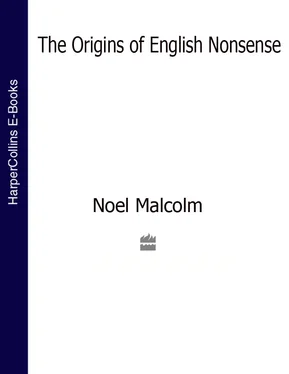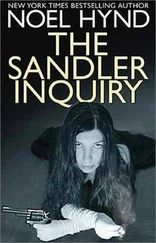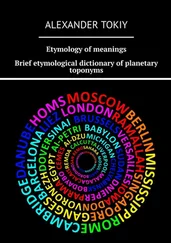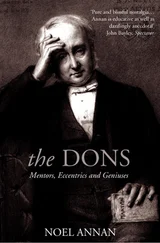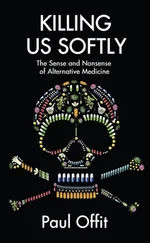1 ...6 7 8 10 11 12 ...17 Yet, ’twere profuse to see for pendant light,
A tea-pot dangle in a lady’s ear;
are so directly reminiscent of one of the most striking conceits in Taylor’s poem,
I grant indeed, that Rainbows layd to sleep,
Snort like a Woodknife in a Ladies eyes,
that it is surely necessary to conclude that Knight had read either Taylor’s original text or the version of these lines printed in the later anthology. We know that seventeenth-century texts were eagerly devoured by early nineteenth-century ‘library cormorants’ such as Robert Southey, who attempted to revive interest in Taylor with a long and sympathetic essay on the water-poet in his Lives and Works of the Uneducated Poets (1831). In this essay Southey quoted ten lines from Taylor’s Sir Gregory Nonsence , describing them as ‘verses of grandiloquous nonsense … honest right rampant nonsense’. 57It is not impossible, therefore, that, more than 150 years after his death, Taylor’s grandiloquous nonsense played some part, however indirectly, in stimulating the growing fashion for nonsense poetry which was to find its finest examples in the works of Edward Lear and Lewis Carroll.
CHAPTER 2
Fustian, bombast and satire: the stylistic preconditions of English seventeenth-century nonsense poetry
THE ‘FUSTIAN’ SPEECH performed by John Hoskyns in the winter of 1597–8 (above, pp. 9–11) belonged to a genre which formed an important part of the background to the nonsense poetry of this period. Many seventeenth-century writers would use the terms ‘nonsense’ and ‘fustian’ almost interchangeably. This may surprise the modern reader, to whom it is obvious that most instances of fustian prose have a definite sense, albeit one expressed in needlessly obscure or elaborate terms. But the association of fustian with nonsense must be taken seriously. It helps to show that in this period nonsense writing was thought of primarily in terms of a parodic stylistic exercise: to write nonsense was not to express the strangeness of unconscious thought but to engage in a highly self-conscious stylistic game. The history of fustian prose still waits to be written; a brief account can be given here.
The phenomenon itself was older than its name. Many writers in the sixteenth century were acutely conscious of the fact that large quantities of vocabulary were being lifted out of Latin (either directly or via French) and added to the English language. A few (such as the Bible translators William Tyndale and John Cheke) deliberately resisted this trend; others welcomed the enrichment of the language, but were aware at the same time that English was acquiring new registers of ornate and lofty diction which could easily be abused. Two varieties of misuse could be distinguished: the excessively ‘aureate’ language of the would-be courtier, and the deliberate obscurity of the would-be scholar. Since both of these involved the use of cumbersome Latinate terminology, they were easily conflated into a single stylistic fault: the use of ‘inkhorn terms’. One very influential English handbook, Wilson’s Arte of Rhetorique (first edition 1553; revised edition 1560), put it as follows:
The unlearned or foolish phantasticall, that smelles but of learning … will so Latin their tongues, that the simple can not but wonder at their talke, and thinke surely they speake by some revelation. I know them that thinke Rheorique to stande wholie upon darke wordes, and hee that can catch an ynke home terme by the taile, him they coumpt to be a fine Englisheman, and a good Rhetorician . 1
To illustrate his point, Wilson printed a preposterous letter, sent (as he claimed, with tongue in cheek) by a Lincolnshire man to an acquaintance in the household of the Lord Chancellor:
Pondering, expending, and revoluting with my selfe, your ingent affabilitie, and ingenious capacity for mundane affaires: I cannot but celebrate, & extol your magnifical dexteritie above all other. For how could you have adepted such illustrate prerogative, and dominicall superioritie, if the fecunditie of your ingenie had not been so fertile and wonderfull pregnant … 2
This still retains some power to impress the modern reader; it requires an effort of the imagination, however, to realize now just how outlandish this sounded in the mid sixteenth century, when so many of these words were newly minted.
Wilson may not have invented this parodie genre in English, but he certainly helped to ensure its widespread popularity. By the 1590s, as we have already seen, it was standard fare at the Inns of Court revels; and it is quite certain that Hoskyns had studied Wilson’s book carefully, since some of the word-play in his own ‘fustian speech’ is taken from another section of The Arte of Rhetorique. 3But Wilson was not the only popularizer of the genre. Sir Philip Sidney, writing in the 1580s, had also given a fine specimen of it in the person of Rombus, the learned fool in his Arcadia :
Why you brute Nebulons have you had my corpusculum so long among you, and cannot tell how to edifie an argument? Attend and throw your ears to me, for I am gravidated with child, till I have endoctrinated your plumbeous cerebrosities. First you must divisionate your point, quasi you would cut a cheese into two particles, for thus must I uniforme my speeche to your obtuse conceptions … 4
So popular was this passage that an allusion to ‘plumbeous cerebrosities’ became a common hallmark of later fustian speeches.
At the time when Sidney was completing his Arcadia , English prose was experiencing a huge intensification of stylistic self-consciousness as a result of the influence of John Lyly’s Euphues. Ornate, mellifluous and elaborate, ‘Euphuistic’ prose was a nonstop succession (and superimposition) of stylistic devices, especially alliteration and the balancing and echoing of clauses, in a diction both lofty and pretty. This style encouraged courtly, ‘aureate’ prose to attempt new heights, while at the same time slightly blurring the line between extravagant achievement and self-parody. Thomas Coryate supplied a very blurred instance of this when he printed the ‘orations’ he had made when delivering copies of his Crudities to members of the royal family in 1611. His address to Prince Henry, for example, began:
Most scintillant Phosphorus of our British Trinacria , Even as the Christalline deaw, that is exhaled up into the ayre out of the cavernes & spungie pores of the succulent Earth, doeth by his distillation descend, and disperse it selfe againe upon the spacious superficies of his mother Earth , and so consequently fecundate the same with his bountifull irrigation … 5
This is quite close to the sort of thing ‘fustian’ prose parodied. But the essence of fustian was that it parodied the language of scholars, rather than courtiers. In Act III of Jonson’s Every Man out of his Humour (first performed in 1599) Carlo Buffone says to his companion: ‘prithee, let’s talk fustian a little, and gull ’em: make ’em believe we are great scholars’. The speech he proceeds to make (which, more than any other instance of fustian prose, verges on the fully nonsensical) depends for its ‘fustian’ effect not on devices such as alliteration but on the sheer density of inkhorn terms:
Now, sir, whereas the ingenuity of the time and the soul’s synderesis are but embryons in nature, added to the paunch of Esquiline and the intervallum of the zodiac, besides the ecliptic line being optic and not mental, but by the contemplative and theoric part thereof doth demonstrate to us the vegetable circumference, and the ventosity of the Tropics … 6
That fustian prose normally retained some element of scholarly or academic pretensions is hardly surprising, since it was the rituals of places of learning – the Inns of Court and the universities – that kept it going as a popular genre. Anthony Wood supplies a valuable description of the Christmas traditions he experienced at Merton College, Oxford, in 1647. Fires were lit in the College hall on every feast-day and holiday from All Saints to Candlemas:
Читать дальше
